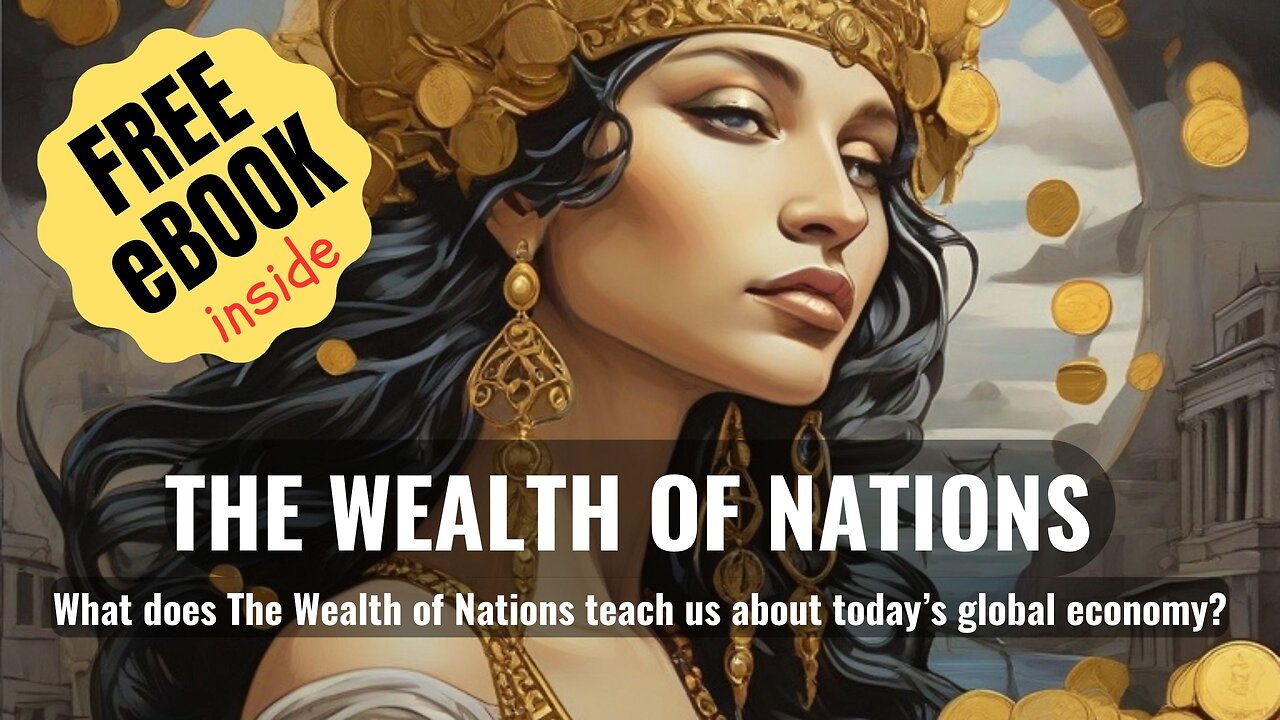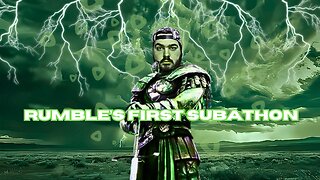Premium Only Content

The Wealth of Nations: What does The Wealth of Nations teach us about today’s global economy?
Understanding Adam Smith's The Wealth of Nations: Key Concepts Explained
"Hey everyone, welcome back to the channel! Today, we’re diving into one of the most influential books in history, Adam Smith’s An Inquiry into the Nature and Causes of the Wealth of Nations. Written back in 1776, this book laid the foundation for modern economics and shaped how we understand capitalism today. Let’s break it down and explore why it still matters!"
1: The Context
"At the time Smith was writing, most countries followed mercantilism, where governments tightly controlled trade and believed that accumulating gold and silver was the key to national wealth. Smith challenged that. He argued that wealth comes not from hoarding gold but from increasing a nation’s ability to produce goods and services. This was revolutionary thinking!"
2: The Invisible Hand
"One of the most famous concepts from The Wealth of Nations is the 'invisible hand.' According to Smith, individuals acting in their own self-interest—whether as consumers or business owners—end up benefiting society without even intending to. When businesses compete for customers, they have to innovate, offer better prices, and improve quality. This competition leads to more efficient markets and benefits everyone."
3: The Division of Labor
"Smith also introduced the idea of the division of labor, which is still incredibly relevant today. He observed that by breaking down production into small, specialized tasks, workers could become much more efficient. Imagine a pin factory where one person makes the entire pin versus a factory where each worker focuses on one part of the pin-making process. The latter produces way more pins!"
"This principle is the backbone of modern industrial production and even the way we think about job specialization today."
4: The Role of Government
"While Smith was a strong advocate for free markets, he didn’t believe in a completely hands-off approach. He outlined three important roles for government: first, to protect the nation from external threats; second, to administer justice and uphold laws; and third, to provide public goods like infrastructure and education, which private markets might not handle effectively."
5: Why It Still Matters Today
"So why is The Wealth of Nations still so relevant? Well, Smith’s ideas are the foundation of capitalism and free-market economies around the world. His thoughts on self-interest, competition, and the role of government are still central to debates on economic policy today. Whether it’s discussions about income inequality, the role of government in markets, or globalization, Smith’s work helps us understand these issues better."
"Adam Smith’s The Wealth of Nations offers timeless insights into how economies function, how markets create wealth, and what role governments should play. If you’re interested in economics, politics, or how our modern world came to be, this is definitely a book worth exploring further!"
Don’t forget to Like, Subscribe, and hit the bell for more insights into economic theory and history!
"Thanks for watching, and see you next time!"
FREE eBOOK: https://www.gutenberg.org/cache/epub/3300/pg3300-images.html
-
 LIVE
LIVE
TheSaf3Hav3n
3 days ago| RUMBLES FIRST SUBATHON IS HERE!!! | DAY 4 |
2,200 watching -
 3:14:33
3:14:33
Joe Donuts Gaming
11 hours ago🟢 Live : Christmas is Here!! | Fortnite, Caroling, Light Tours and Donos !!
42.3K12 -
 6:02:38
6:02:38
CLUJ
10 hours agoCHRISTMAS EVENING HYPE!! LETS HAVE FUN GAMING!!
39.2K7 -
![I AM FINALLY BACK :: PUBG: BATTLEGROUNDS :: RUMBLE NOW HAS GIFTED SUBS!!! [Merry Christmas] {18+}](https://1a-1791.com/video/fwe1/22/s8/1/e/f/C/6/efC6v.0kob-small-I-AM-FINALLY-BACK-PUBG-BATT.jpg) 9:57:19
9:57:19
a12cat34dog
12 hours agoI AM FINALLY BACK :: PUBG: BATTLEGROUNDS :: RUMBLE NOW HAS GIFTED SUBS!!! [Merry Christmas] {18+}
27.9K4 -
 3:55:42
3:55:42
STARM1X16
11 hours agoMerry Christmas Fortnite
81.5K10 -
 2:45:33
2:45:33
Sgtfinesse
11 hours agoMerry Christmas Night
65.8K19 -
 3:51:18
3:51:18
tacetmort3m
1 day ago🔴 LIVE - (MERRY CHRISTMAS) TIME TO SPREAD DEMOCRACY - HELLDIVERS 2 OMENS OF TYRANNY
37.6K2 -
 2:46
2:46
BIG NEM
15 hours agoDiscovering RAKIJA: The Holy Liquer of the Balkans
26.2K2 -
 1:11:38
1:11:38
Film Threat
19 hours agoCHRISTMAS DAY CHILL STREAM WITH CHRIS GORE | Hollywood on the Rocks
145K32 -
 14:22:40
14:22:40
The Quartering
1 day agoYule Log Christmas MAGA Edition With Memes! Come Hang Out!
234K31